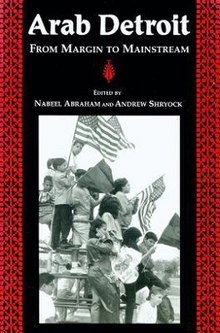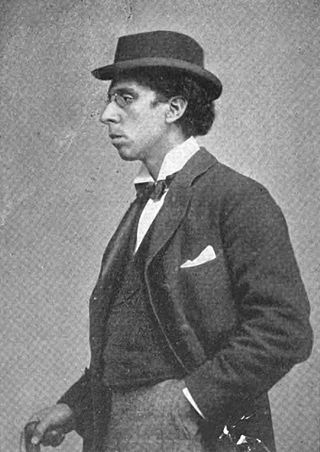
Israel Zangwill was a British author at the forefront of Zionism during the 19th century, and was a close associate of Theodor Herzl. He later rejected the search for a Jewish homeland in Palestine and became the prime thinker behind the territorial movement.
Heavenly Discourse is a collection of satirical essays by Charles Erskine Scott Wood, published in 1927.
Mary R. Lefkowitz is an American scholar of Classics. She is the Professor Emerita of Classical Studies at Wellesley College in Wellesley, Massachusetts, where she previously worked from 1959 to 2005. She has published ten books over the course of her career.
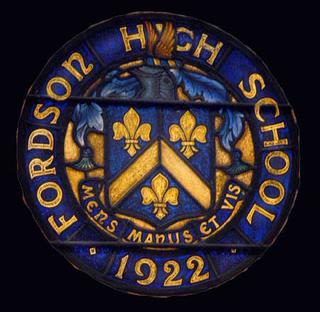
Fordson High School is a secondary school located in Dearborn, Michigan, United States in Metro Detroit. It was completed in 1928 on a 15-acre (61,000 m2) parcel of land which was then the village of Fordson, named for Henry Ford and his son Edsel Ford. It is a part of Dearborn Public Schools.
Beth E. Brant, Degonwadonti, or Kaieneke'hak was a Mohawk writer, essayist, and poet of the Mohawks of the Bay of Quinte First Nation from the Tyendinaga Mohawk Territory in Ontario, Canada. She was also a lecturer, editor, and speaker. She wrote based on her deep connection to her indigenous people and touched on the infliction of racism and colonization. She brought her writing to life from her personal experiences of being a lesbian, having an abusive spouse, and her mixed blood heritage from having a Mohawk father and a Scottish-Irish mother. Her published works include three edited anthologies and three books of essays and short stories.

Thaddeus C. Radzilowski or Thaddeus C. Radzialowski or Tadeusz Radziłowski was a Polish-American historian, scholar, author, professor and co-founder of the Piast Institute, a national institute for Polish and Polish-American affairs. Radzilowski's work focused on Poland and other Central and Eastern European nations, including Russia. He wrote extensively on the histories of these regions as well as the migration of peoples from Central and Eastern Europe, with special emphasis on social history and historiography. He lectured widely in Europe and North America and published more than 100 monographs, edited collections, journal articles, book chapters and scholarly papers.
Khaled Mattawa is a Libyan poet, and a renowned Arab-American writer, he is also a leading literary translator, focusing on translating Arabic poetry into English. He works as an Assistant professor of creative writing at the University of Michigan, Ann Arbor, Michigan, United States, where he currently lives and writes.
A middleman minority is a minority population whose main occupations link producers and consumers: traders, money-lenders, etc. A middleman minority, while possibly suffering discrimination and bullying, does not hold an "extreme subordinate" status in society. The "middleman minority" concept was developed by sociologists Hubert Blalock and Edna Bonacich starting in the 1960s but is also used by political scientists and economists. This idea was further developed by American economist Thomas Sowell.
Salom Rizk was a Syrian-American author, best known for his 1943 immigrant autobiography, Syrian Yankee, perhaps the best-known piece of Arab American literature in the middle part of the century. The book has been called "a classic of the immigrant biography genre", especially for the way Rizk's story portrays the American Dream and the virtues of cultural assimilation at the expense of his home country, which he finds loathsome when he returns for a visit. Rizk became well known enough that Reader's Digest sponsored him on a lecture tour around the United States as "the quintessential American immigrant". He also sponsored a drive for the Save the Children Federation, using advertisements in such magazines as Boys' Life to request families send their extra pencils, so that these could be donated to needy school-children around the world as a way of promoting freedom and democracy and fighting tyranny.

The Detroit metropolitan area has one of the largest concentrations of people of Middle Eastern origin, including Arabs and Chaldo-Assyrians in the United States. As of 2007 about 300,000 people in Southeast Michigan traced their descent from the Middle East. Dearborn's sizeable Arab community consists largely of Lebanese people who immigrated for jobs in the auto industry in the 1920s, and of more recent Yemenis and Iraqis. In 2010 the four Metro Detroit counties had at least 200,000 people of Middle Eastern origin. Bobby Ghosh of TIME said that some estimates gave much larger numbers. From 1990 to 2000 the percentage of people speaking Arabic in the home increased by 106% in Wayne County, 99.5% in Macomb County, and 41% in Oakland County.
Yemeni Americans are Americans of Yemeni ancestry. According to an estimate in 2010, more than 100,000 Yemenis live in the United States.
Islamic Homosexualities: Culture, History, and Literature is a collection of essays edited by Stephen O. Murray and Will Roscoe and published in 1997 by New York University Press.
The Church in the Barrio: Mexican American Ethno-Catholicism in Houston is a 2006 book by Roberto R. Treviño, published by the University of North Carolina Press. The work covers the years 1911-1972 and discusses the relationship between the Mexican-American community and the Catholic church, and the "ethno-Catholicism" among Houston's Mexicans. This ethno-Catholism consisted of the cultural interaction between Irish American priests, religious practices of the indigenous Mexicans, and Mexican customs.
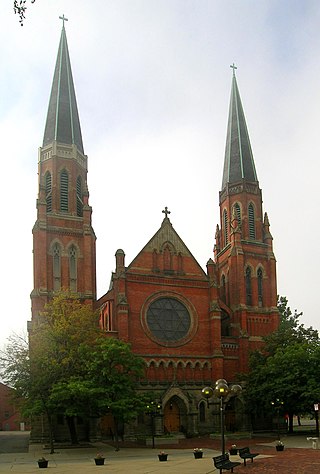
Metro Detroit includes Christian, Muslim, Jewish, Hindu, Buddhist, and other groups.
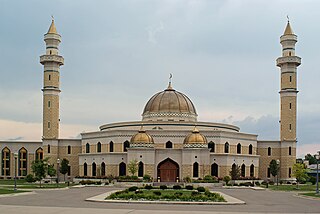
Islam is practiced by several Muslim American groups in Metro Detroit.

Laura Goode is an American author, novelist, essayist, poet, screenwriter, producer, and feminist. She is the author of the young adult novel Sister Mischief, the co-writer and producer of the feature film Farah Goes Bang, and writes the ANTIHEROINES column for Bright Ideas Magazine. She lives in San Francisco.
Koreans in Japan: Critical Voices from the Margin is a 2000 book edited by Sonia Ryang and published by Routledge. It discusses Zainichi Koreans in Japan.
Islamophobia/Islamophilia: Beyond the Politics of Enemy and Friend is a 2010 book edited by Andrew Shryock, published by Indiana University Press.
White Metropolis: Race, Ethnicity, and Religion in Dallas, 1841–2001 is a 2006 book by Michael Phillips, published by the University of Texas Press. It discusses race relations in Dallas, Texas, from the city's founding until the time of publication. It examines the relationship between White Protestants, White Catholics, Whites of Slavic descent, Blacks, Mexican Americans, and Jews. The book's thesis is that the city's powers that be used the desire for "whiteness" to control not only non-White minorities but also working class Whites, and that it gained power and directed the development of Dallas through exploiting the concept of whiteness and religion. White Metropolis was the first book that discussed how religion impacted the history of Dallas. Phillips argues that the leadership of the city made Whiteness as a model of success and attempted to make its citizens forget Dallas's racially strifed past.
Nabeel Abraham is an American anthropologist and activist. His research focuses around Arab-Americans and how Arabs and Palestinians are represented in mainstream American media.
